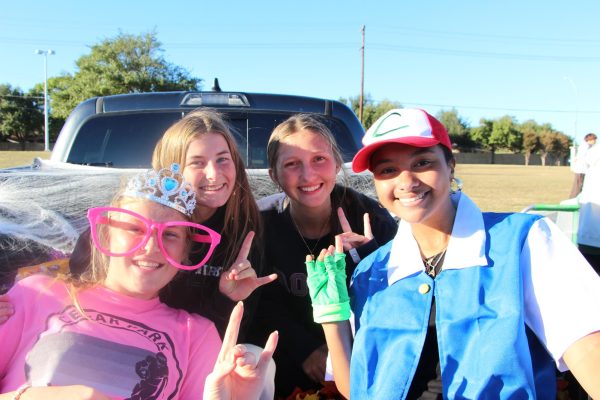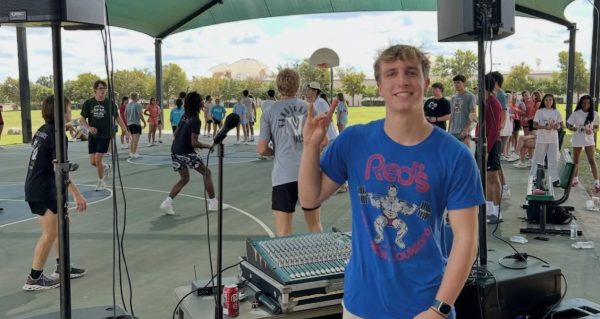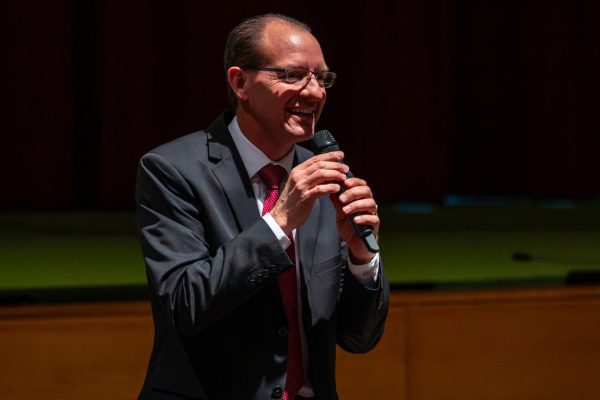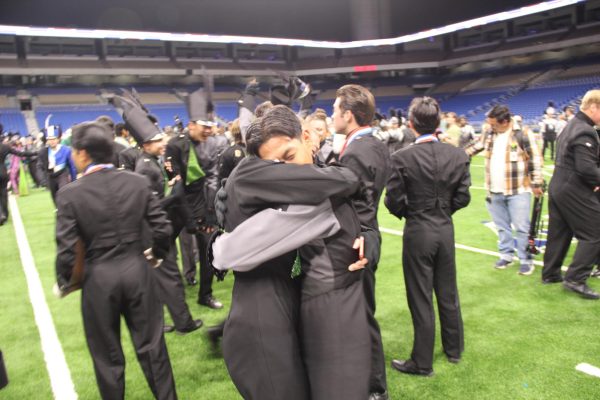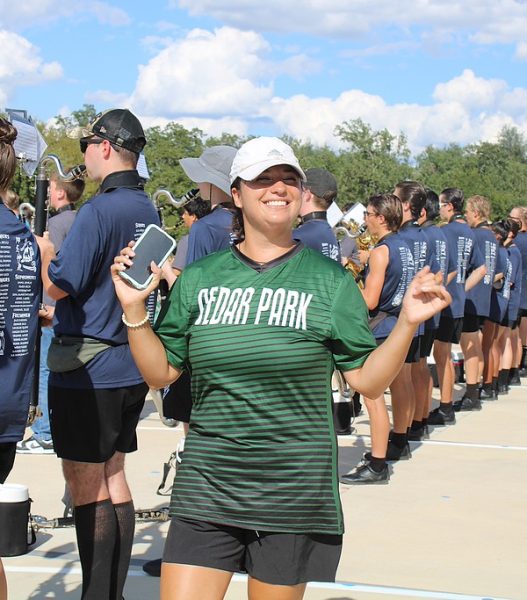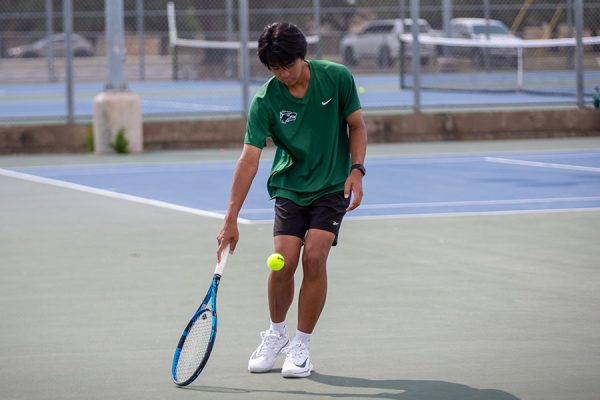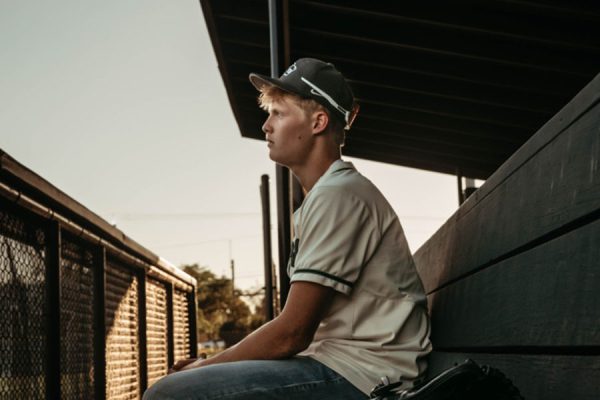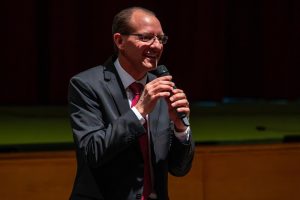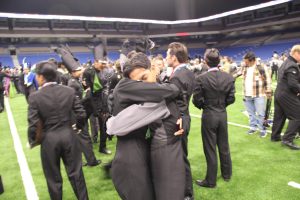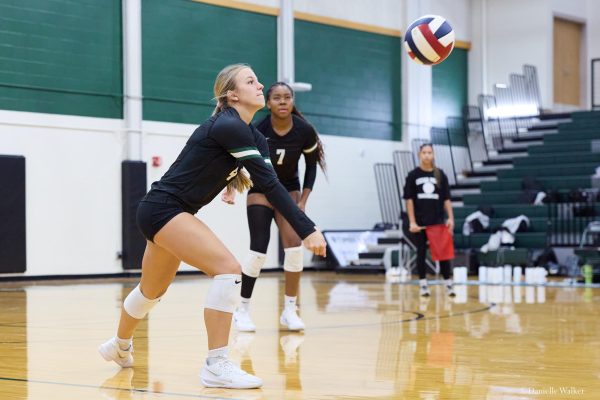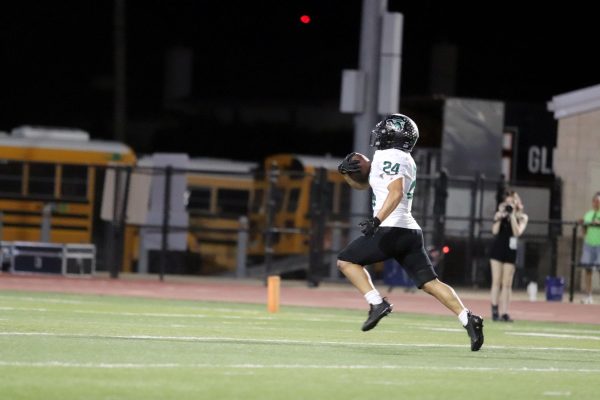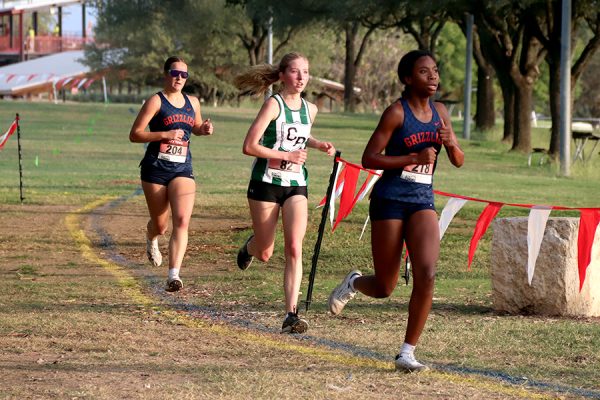Teacher Feature
Educators Share Motivation, Joys Of Profession
AP U.S. history teacher Josh Marsh lectures on the Mexican American War. “I try to always remember that my class isn’t the only class kids have to deal with, along with extracurriculars, so I make sure to treat them fairly & have some leniency,” Marsh said.
November 29, 2019
There is no question about the importance of teachers in a school. Without them, the school could never run in the first place. They help improve skills in math, English, science and many other things in hopes of preparing us for a bright future, but there is a lot more to them that students don’t see or don’t even think to ask about. It’s hard sometimes not to wonder how they got into teaching and why they do it.
Earth Space Science and Environmental Systems teacher, Amy Durden, said that her favorite thing is helping teenagers learn and reaching what she calls an “Aha moment,” when they finally understand and become excited about an important concept.
“I want to encourage teenagers to prepare for their future through hard work, dedication, determination and a sense of curiosity and thirst for knowledge,” Durden said
Spanish teacher and volleyball coach Rebecca Zabel-Brewer had another point of view which adhered more to what she enjoys about her daily life as a teacher.
“I get to be in the company of some really incredible colleagues,” Brewer said. “There is no profession more educated than teachers and it’s fun to be in the presence of so many smart and compassionate people.”
Teachers were not only students but teenagers once as well. Like her students, she teaches, English lV teacher Kristin Burke, went through trials and tribulations to get to where she is today and many of her experiences allow her to become a better teacher.
“Although I was always a bright student who loved learning, I often felt alone and disconnected,” Burke said. “I made some poor choices, and sometimes my behaviors were attention-seeking. Through the course of my education, I had a few teachers who reached out to show me that my contributions were necessary and meaningful and that I mattered. I want all students to know that they are valued. I want to support their passions and let them know their voices are heard.”
Uniquely, AP US History teacher, Josh Marsh, had an even more in depth knowledge about how to teach and treat your students after growing up with parents who were teachers as well.
“My parents were also teachers and gave me some great advice as to what to do and what not to do as an educator,” Marsh said. “ I also try to always remember that my class isn’t the only class kids have to deal with, along with extracurriculars, so I make sure to treat them fairly and have some leniency.”
Marsh didn’t always intend on teaching. With a love for Disney and a background of working for Disney World that was the path that he initially planned on.
“Although I went to college to become a teacher, there was a time I thought of not teaching,” Marsh said. “If I didn’t become a teacher, I wanted to work at Walt Disney World. Luckily I realized very early on after college that in order to pay my bills, teaching was probably the best route to take.”
English teacher Michelle Iskra took a little longer to land on teaching, after trying out a few other careers first. In the end, she landed on teaching her favorite subject as a way to both enjoy her passion and help others at the same time.
“I had a full scholarship to study theatre out of high school,” Iskra said. “Once I began acting professionally I saw that I didn’t need a degree in theatre and changed my major to accounting so [that] I could work for myself. It wasn’t until I became an accountant and realized it wasn’t for me that I asked myself what I really wanted to do. I love literature and writing; becoming a teacher was the best way to help students develop confidence in those areas, which is what I needed when I was in high school. I earned a Master’s degree in English Literature and a teaching certificate and got to work.”
Brewer, whose original goal was to become a professional athlete, wants her students to understand that it’s okay to slow down, think, and enjoy life where they are before jumping into the next phase of life.
“If I could go back in time and tell my young self two things, number one I would say: it’s all going to be okay,” Brewer said. “And two, I would say: don’t be in a rush to move to the next step because it goes fast, time is relative, [and] the older you get, the faster it goes.”

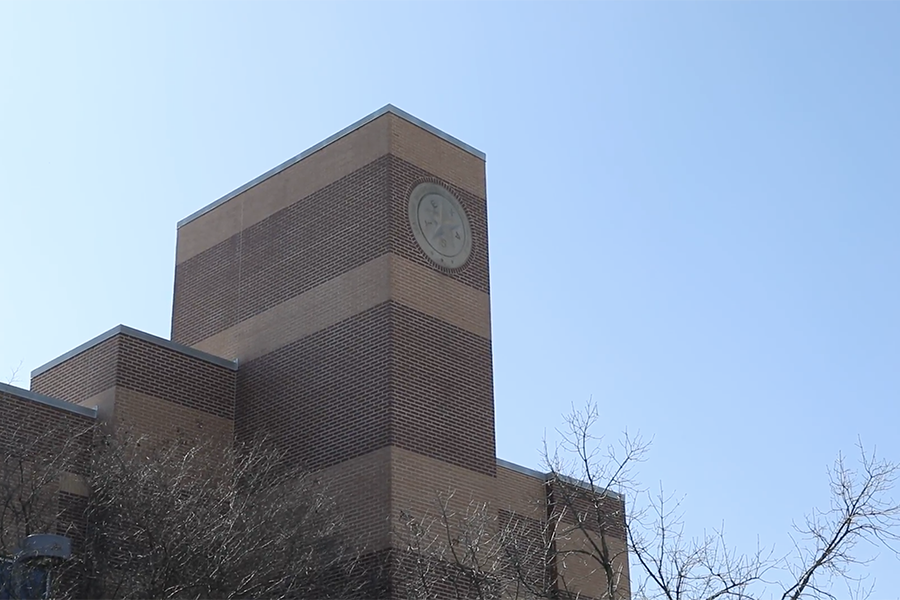
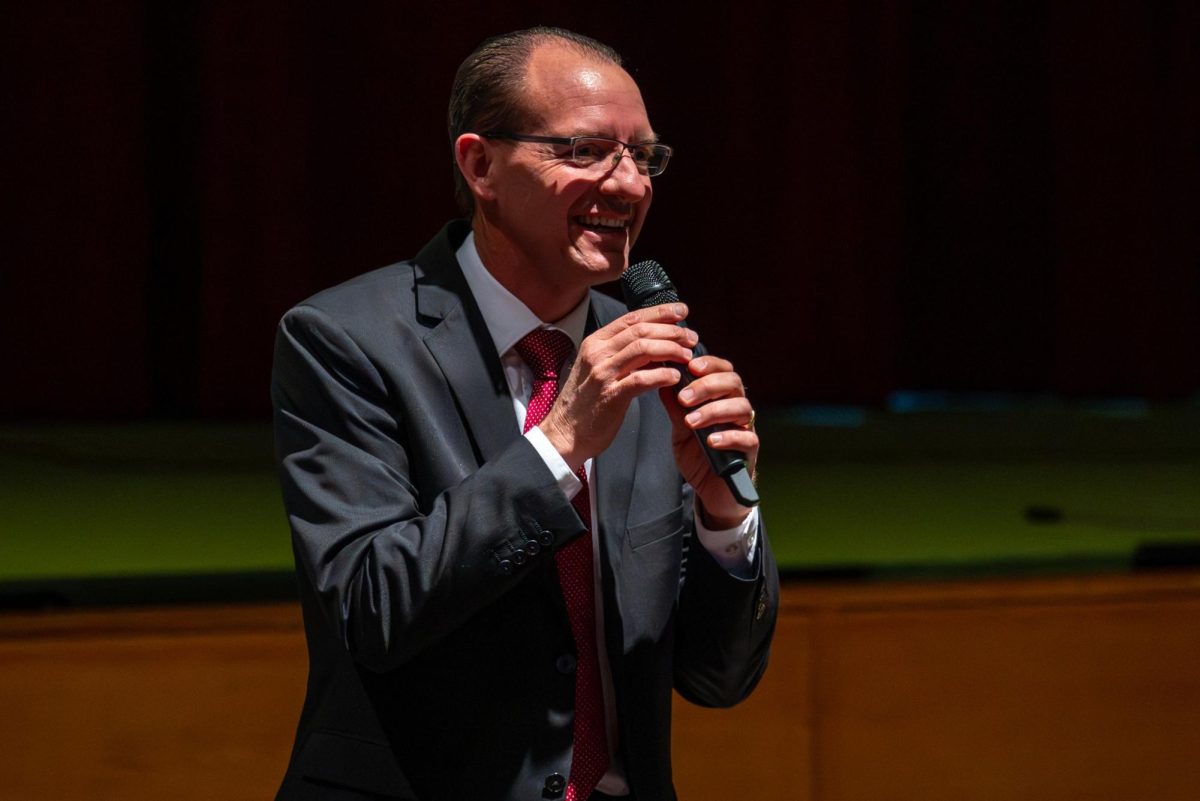
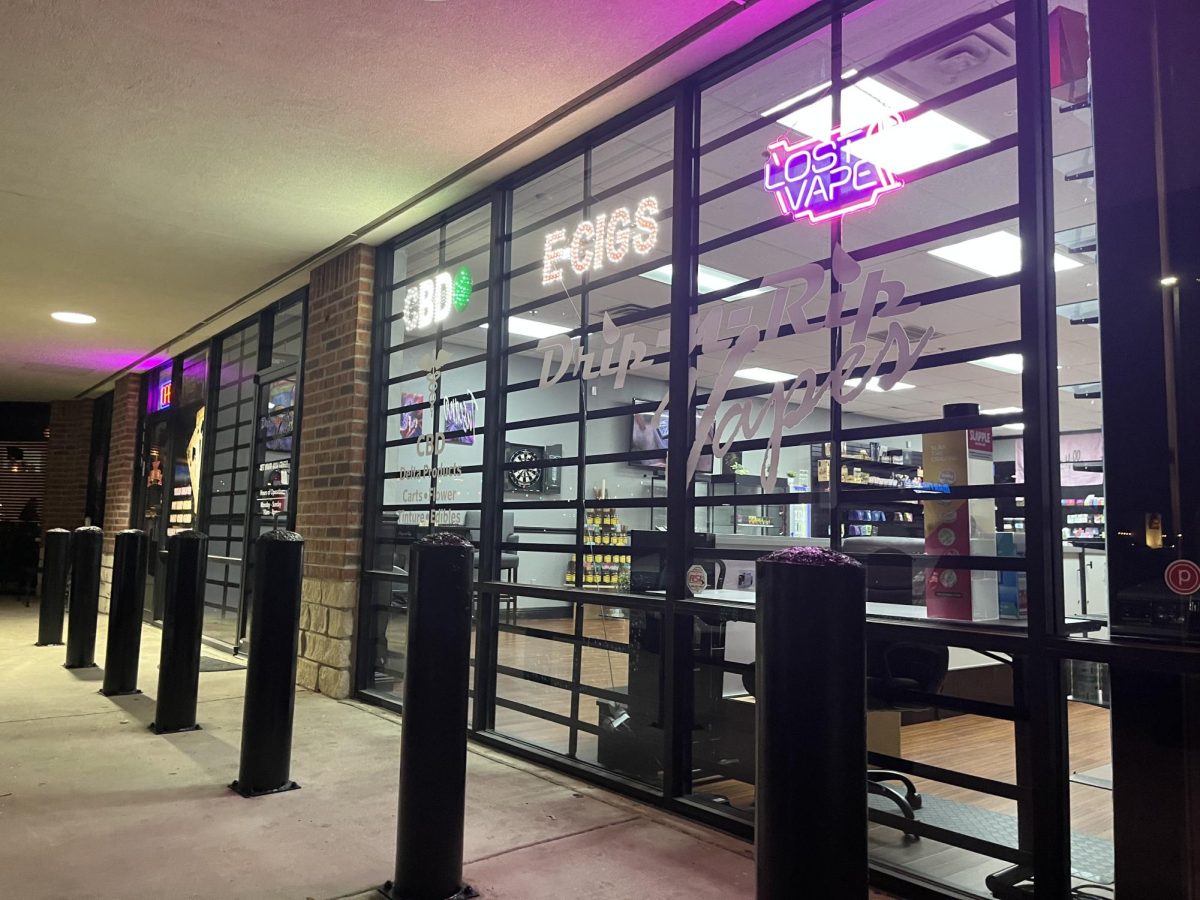
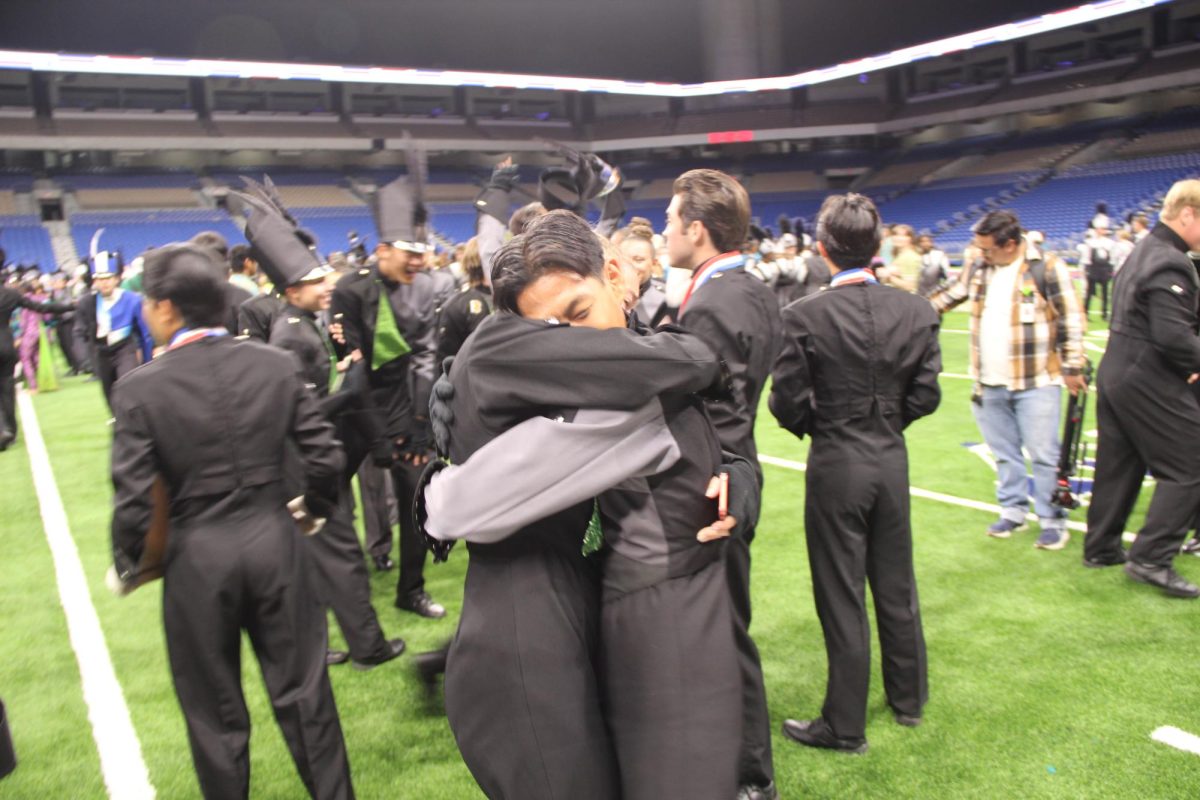
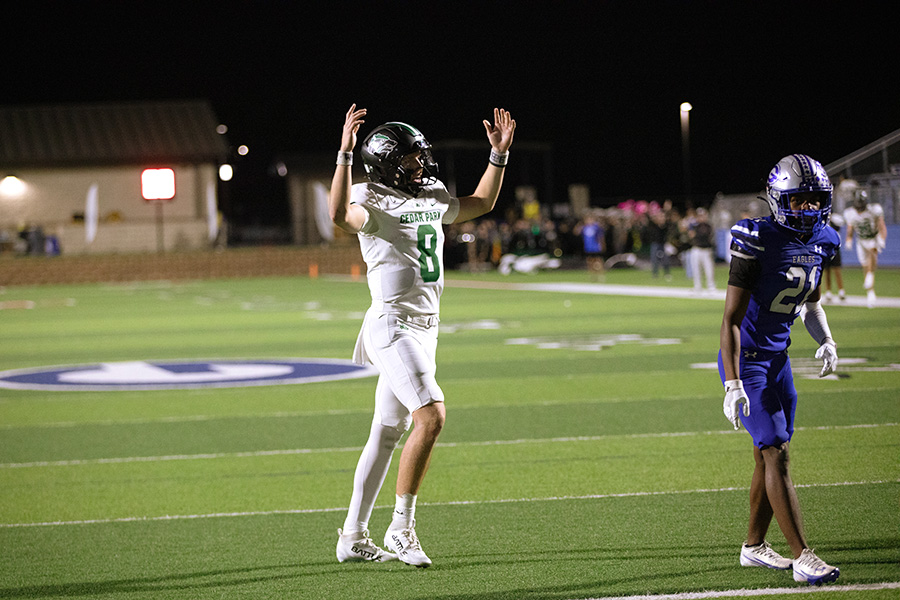
![Senior Jett Mckinney stores all the clothes in his own room, with half of it stored in his closet along with his personal clothes, and the rest taking up space in his room.
“There’s been times [when] there’s so much clothing stored here and it gets overwhelming, so I end up having to sleep somewhere else in the house,” Mckinney said.](https://cphswolfpack.com/wp-content/uploads/2025/11/DSC_0951-1200x800.jpg)
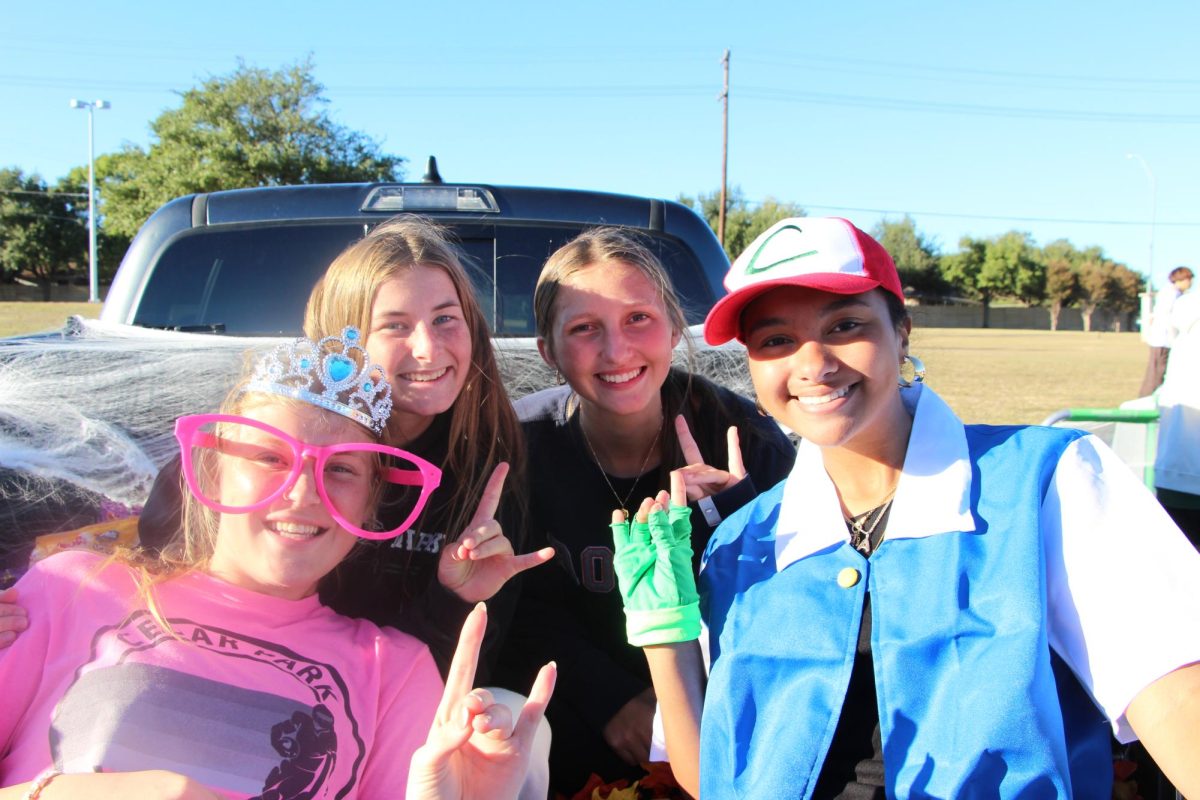


![Broadcast, yearbook and newspaper combined for 66 Interscholastic League Press Conference awards this year. Yearbook won 43, newspaper won 14 and broadcast took home nine. “I think [the ILPC awards] are a great way to give the kids some acknowledgement for all of their hard work,” newspaper and yearbook adviser Paige Hert said. “They typically spend the year covering everyone else’s big moments, so it’s really cool for them to be celebrated so many times and in so many different ways.”](https://cphswolfpack.com/wp-content/uploads/2025/05/edited-ILPC.jpg)




![Looking down at his racket, junior Hasun Nguyen hits the green tennis ball. Hasun has played tennis since he was 9 years old, and he is on the varsity team. "I feel like it’s not really appreciated in America as much, but [tennis] is a really competitive and mentally challenging sport,” Nguyen said. “I’m really level-headed and can keep my cool during a match, and that helps me play a bit better under pressure.” Photo by Kyra Cox](https://cphswolfpack.com/wp-content/uploads/2025/09/hasun.jpg)

![Bringing her arm over her head and taking a quick breath, junior Lauren Lucas swims the final laps of the 500 freestyle at the regionals swimming competition on date. Lucas broke the school’s 18-year-old record for the 500 freestyle at regionals and again at state with a time of 4:58.63. “I’d had my eye on that 500 record since my freshman year, so I was really excited to see if I could get it at regionals or districts,” Lucas said. “ State is always a really fun experience and medaling for the first time was really great. It was a very very tight race, [so] I was a bit surprised [that I medaled]. [There were] a lot of fast girls at the meet in general, [and] it was like a dogfight back and forth, back and forth.” Photo by Kaydence Wilkinson](https://cphswolfpack.com/wp-content/uploads/2025/03/Kaydence-2.7-23-edit-2.jpg)
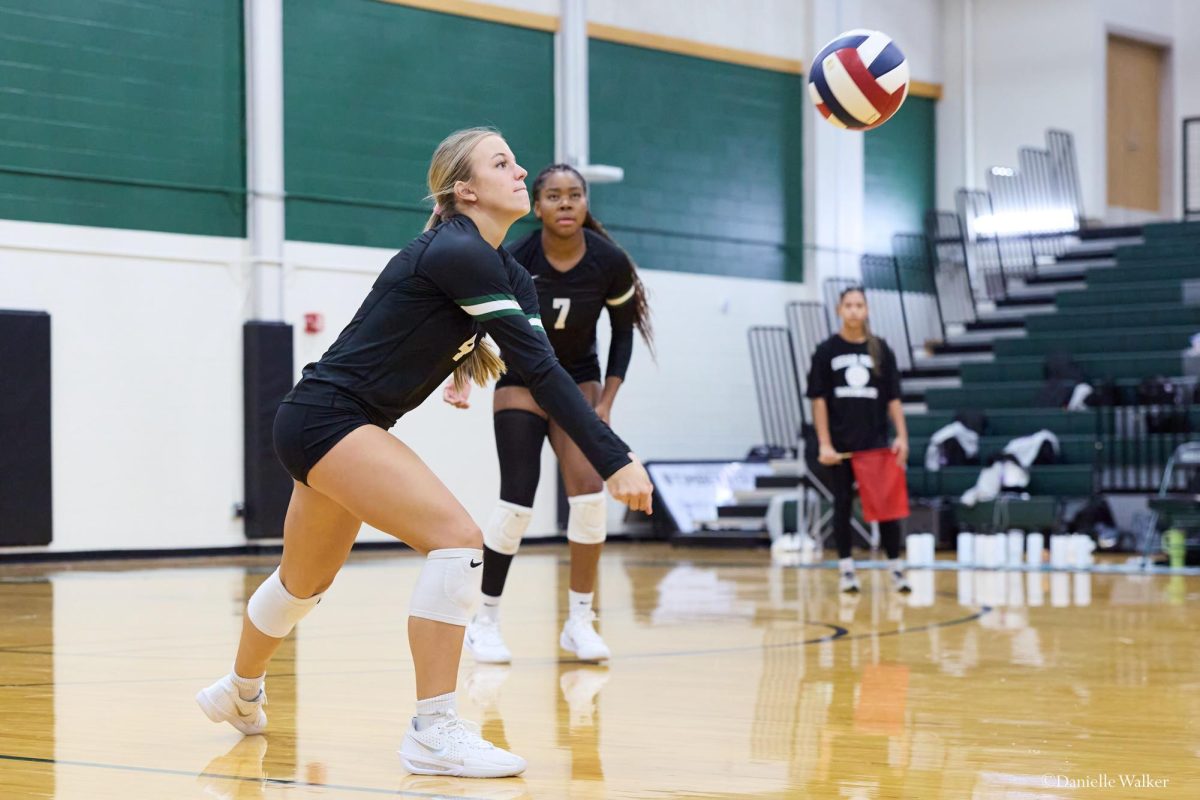

![As her hair blows in the wind, senior Brianna Grandow runs the varsity girls 5K at the cross country district meet last Thursday. Grandow finished fourth in the event and led the varsity girls to regionals with a third place placement as a team. “I’m very excited [to go to regionals],” Grandow said. “I’m excited to race in Corpus Christi, and we get to go to the beach, so that’s really awesome.” Photo by Addison Bruce](https://cphswolfpack.com/wp-content/uploads/2025/10/brianna.jpg)

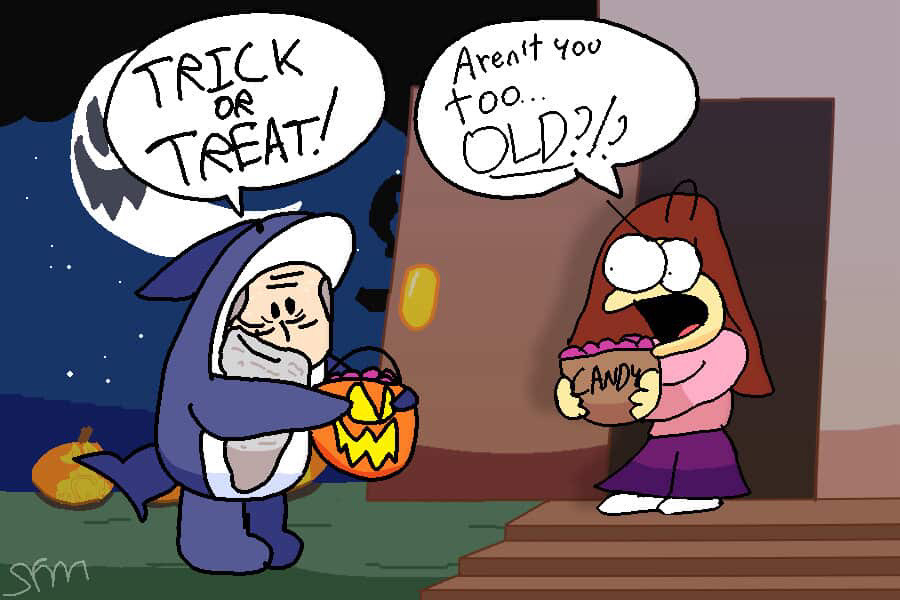













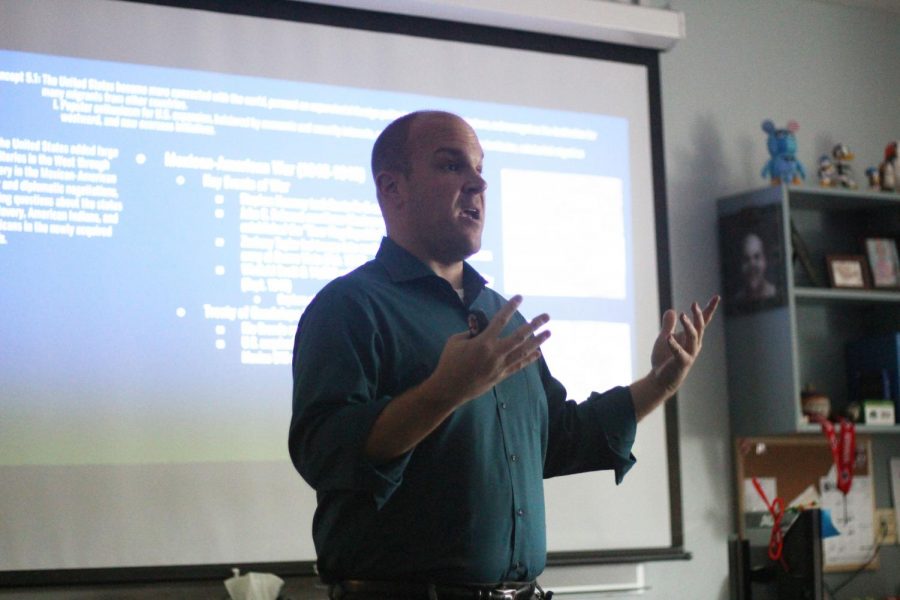
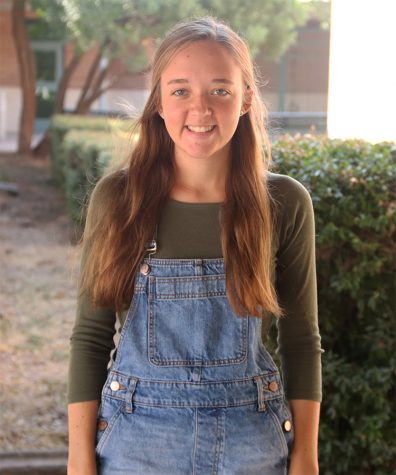
![Holding a microphone, baseball booster club president Chris Cuevas announces the beginning of the annual cornhole tournament. The event has been held for the past two years and is designed to raise money for the baseball program in a fun way. “We’re a baseball team, so people love to compete,” Cuevas said. “So we figured we better do something that gets [their] attention. They want to compete. It’s not a hard sport to do, and we have all different [skill] levels [of participants].” Photo by Henry Mueller](https://cphswolfpack.com/wp-content/uploads/2025/11/Henry-715-1200x900.jpg)
